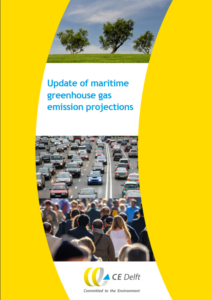BIMCO suggested that the Fourth IMO Greenhouse Gas Study should not include unrealistically high gross domestic product (GDP) growth projections to predict future transport demand and the emissions of the shipping industry. The proposal has been made to the workshop preparing for the study, which is meeting in London 12-14 March.
BIMCO notes that the Fourth IMO GHG Study must avoid scenarios 1 and 5 of the International Panel on Climate Change (IPCC) Shared Socio-economic Pathways (SSP). It explains that these scenarios project considerably higher and unrealistic short- to mid-term economic growth than today’s economic trends and OECD projections. In fact, only the lowest of the five SSPs (scenario 3) has compounded growth according to current OECD projections.
Lars Robert Pedersen, BIMCO Deputy Secretary General, highlighted that:
It is imperative that the industry – and the world – base discussions and actions to reduce emissions from shipping on credible and realistic projections. If not, we risk making the wrong decisions and spending resources ineffectively
[smlsubform prepend=”GET THE SAFETY4SEA IN YOUR INBOX!” showname=false emailtxt=”” emailholder=”Enter your email address” showsubmit=true submittxt=”Submit” jsthanks=false thankyou=”Thank you for subscribing to our mailing list”]
He also added that the previous study’s most pessimistic projection of a 250% increase in CO2 emissions from shipping has been proven unrealistic, due to the actual and projected economic development of the world.
BIMCO has now cooperated with CE Delft, the consultancy that calculated the Third IMO GHG Study’s projections in 2014 for future GHG emissions from ships. The revised calculation includes the most recent OECD GDP projections.
The report highlights, that when using a more realistic GDP growth scenario, the shipping industry is expected to achieve an absolute reduction of 20% versus the target of an absolute emission reduction of 50% by 2050 compared to 2008. In order to achieve this, new solutions are needed. ‘But to pick the right solutions, we need realistic projections’, Mr. Pedersen believes.
Moreover, lower transport work projections have also been supported by two other studies: ‘Energy Transition Outlook 2018: Maritime Forecast to 2050’ by DNV GL and ‘Transport 2040 – Automation, Technology and Employment – The Future of Work’ by the World Maritime University.
Both studies have not connected the correlation between the growth in GDP and transport demand after 2030, and have arrived at projections well below the BIMCO/CE Delft calculation of the Third GHG Study.
BIMCO also recommended that the IMO expert workshop take the decoupling of GDP growth and transport work into consideration.
See more information in the PDF below





























































